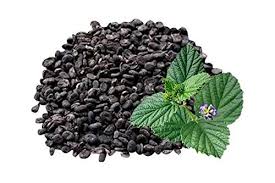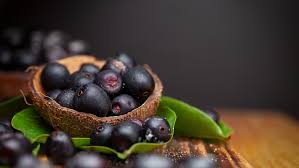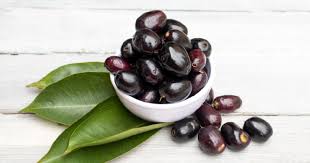
The Role of Babchi Seed in Ayurvedic Skin Treatments
In the world of Ayurveda, natural remedies have always been the cornerstone of skin healing and rejuvenation. One such powerful herb is Babchi seed (Psoralea corylifolia). Traditionally used for treating various skin disorders, Babchi seed is gaining modern recognition for its incredible ability to support skin health naturally. At Dirghaanshi, we delve deep into ancient remedies that offer holistic skincare solutions. Today, we explore how Babchi seed plays a vital role in Ayurvedic skin treatments.
Long Description (Main Content):
What is Babchi Seed?
Babchi seed, also known as Bakuchi in Ayurveda, comes from the plant Psoralea corylifolia. These seeds are small, dark, and slightly aromatic. Babchi is widely appreciated in traditional medicine systems for its antibacterial, antifungal, and anti-inflammatory properties.
It contains active compounds like psoralen, which is known to stimulate melanin production, making it especially beneficial for conditions involving pigmentation and skin tone irregularities.
Ayurvedic Properties of Babchi Seed:
According to Ayurveda, Babchi is:
- Ushna (hot) in nature
- Katu (pungent) and Tikta (bitter) in taste
- Acts on Rakta (blood) and Twacha (skin) dhatus
- Balances Kapha and Vata doshas
These properties make Babchi highly effective in detoxifying the skin, improving circulation, and rejuvenating damaged skin tissues.
1. Babchi for Vitiligo and White Patches:
One of the most common Ayurvedic uses of Babchi seed is for leucoderma or vitiligo, a condition where white patches appear on the skin due to loss of pigmentation. Babchi stimulates melanin synthesis in the skin, helping in restoring the natural color of the affected areas.
Application Tip: Babchi oil or paste, when applied to the depigmented skin under supervision, can gradually help in restoring pigmentation.
2. Treating Eczema and Psoriasis Naturally:
The anti-inflammatory and antimicrobial nature of Babchi makes it ideal for treating eczema, psoriasis, and other chronic skin inflammations. It helps in reducing itchiness, redness, and scaling while healing the skin barrier.
3. Fading Dark Spots and Acne Scars:
Babchi seed helps lighten hyperpigmentation, age spots, and acne marks by promoting the regeneration of healthy skin cells. Its antioxidant content also helps fight free radicals, slowing down premature aging.
4. Natural Glow and Skin Rejuvenation:
In Ayurveda, Babchi is used in skin oil blends and face packs to enhance the natural glow of the skin. It deeply nourishes the tissues and improves blood flow to the facial skin, giving it a healthy, youthful appearance.
5. Anti-Fungal & Anti-Bacterial Properties:
Babchi seed oil has natural anti-microbial abilities. It’s effective against bacterial infections and fungal skin conditions like ringworm. Regular use prevents breakouts and keeps the skin clear and healthy.
6. Improves Skin Texture and Tone:
Babchi seed is used in many Ayurvedic facial formulations to improve skin texture, even out tone, and soften rough patches. It rejuvenates the skin from within by nourishing the deeper layers of the dermis.
How to Use Babchi Seed in Skin Treatments:
- Babchi Oil Application:
- Dilute Babchi oil with coconut or sesame oil.
- Apply to affected areas once daily.
- Always do a patch test to check for skin sensitivity.
- Babchi Seed Paste:
- Grind Babchi seeds into powder.
- Mix with water or rose water to form a paste.
- Apply to white patches or dark spots. Wash after 15–20 minutes.
- Face Packs:
- Combine Babchi powder with turmeric and aloe vera gel.
- Use as a weekly detox face mask for acne-prone or dull skin.
Precautions Before Using Babchi Seed:
- Photosensitivity Alert: Babchi contains psoralen, which increases the skin’s sensitivity to sunlight. Avoid direct sun exposure after applying Babchi-based products.
- Allergy Test: Always perform a patch test before using on larger skin areas.
- Consultation: For chronic conditions like vitiligo or psoriasis, consult an Ayurvedic expert for a personalized treatment plan.
Scientific Backing:
Modern studies support Babchi’s traditional use. Research shows psoralen can trigger melanin production, aiding in the repigmentation of white patches. Its anti-inflammatory and antimicrobial properties are proven beneficial for treating skin infections and inflammation.
Why Babchi Seed is a Key Ingredient in Ayurvedic Skin Care:
- Multi-purpose remedy: Effective against multiple skin problems
- Natural alternative to chemical creams
- Suitable for both oily and dry skin types
- Easily available in powder, oil, and capsule form
Final Thoughts:
Babchi seed stands out as a powerful Ayurvedic herb for skin healing and regeneration. Whether you’re looking to treat pigmentation issues, calm inflammation, or restore your skin’s natural glow, Babchi offers a safe, time-tested solution rooted in ancient wisdom. At Dirghaanshi, we believe in the power of nature to restore balance, and Babchi seed is a prime example of that philosophy.












